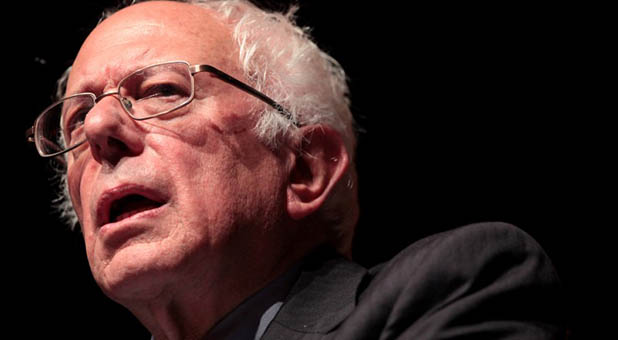Here’s What It Would Take for Bernie to Win
There’s been a lot of talk of late about how Hillary Clinton is slipping in the polls in California, and how this is great news for Bernie Sanders.
Democrats are no doubt getting nervous because their planned coronation of Clinton has been derailed by Sanders’ tenacity and stubbornness. But can the avowed socialist from Vermont actually become the Democratic presidential nominee?
The short answer is yes. But the more accurate answer would be maybe.
Mathematically, it’s certainly possible, but the question is whether or not it’s actually plausible. Here’s how it currently shapes up, going into the final weekend before Final Tuesday.
The “soft” delegate count—which includes pledged and unpledged delegates, including “superdelegates” who have declared their intentions—is heavily in Clinton’s favor. The former secretary of state has 2,293 delegates to Sanders’ 1,547 and there are just 924 delegates left.
Winning the Democratic nomination requires 2,383 delegates.
However, the “hard” delegate count—which only counts the pledged delegates—is far more up in the air. Clinton has won 1,722 to Sanders’ 1,399 with 714 officially “uncommitted.” By that count, there are 930 delegates left to be awarded next week.
Democrats don’t have any “winner take all” formats, which means neither candidate is likely to win much more than a simple majority of the delegates. And, even with the possibility of a federal indictment hanging over Clinton’s head, the superdelegates have been throwing their support behind her at a 4-to-1 ratio.
California is still important, for many reasons. For starters, it provides 548 delegates—475 pledged and 73 superdelegates—which is more than half of the remaining delegates. A win there would continue the growing narrative that Clinton is struggling to unite her own party, much less attract critical independent voters.
Of the 51 contests held so far, Clinton has won 29 and Sanders has won 22, but in six of his losses, he’s been within two percentage points. His staying power in the race has forced the DNC to give him unprecedented influence over next month’s national convention in Philadelphia.
It would appear Clinton could possibly lose the popular vote in California but still win a majority of the delegates. During the most recent survey of superdelegates last week, 57 of the 73 had pledged their support to Clinton.
Other states that will vote on Final Tuesday are Montana, New Jersey, New Mexico, North Dakota and South Dakota. Although the Republican presidential primary will end that day, the District of Columbia will vote last in the Democratic race the following Tuesday.
Regardless of who wins those events, there is one thing for certain: the candidate who wins over the superdelegates is going to be the next Democratic presidential nominee.






































